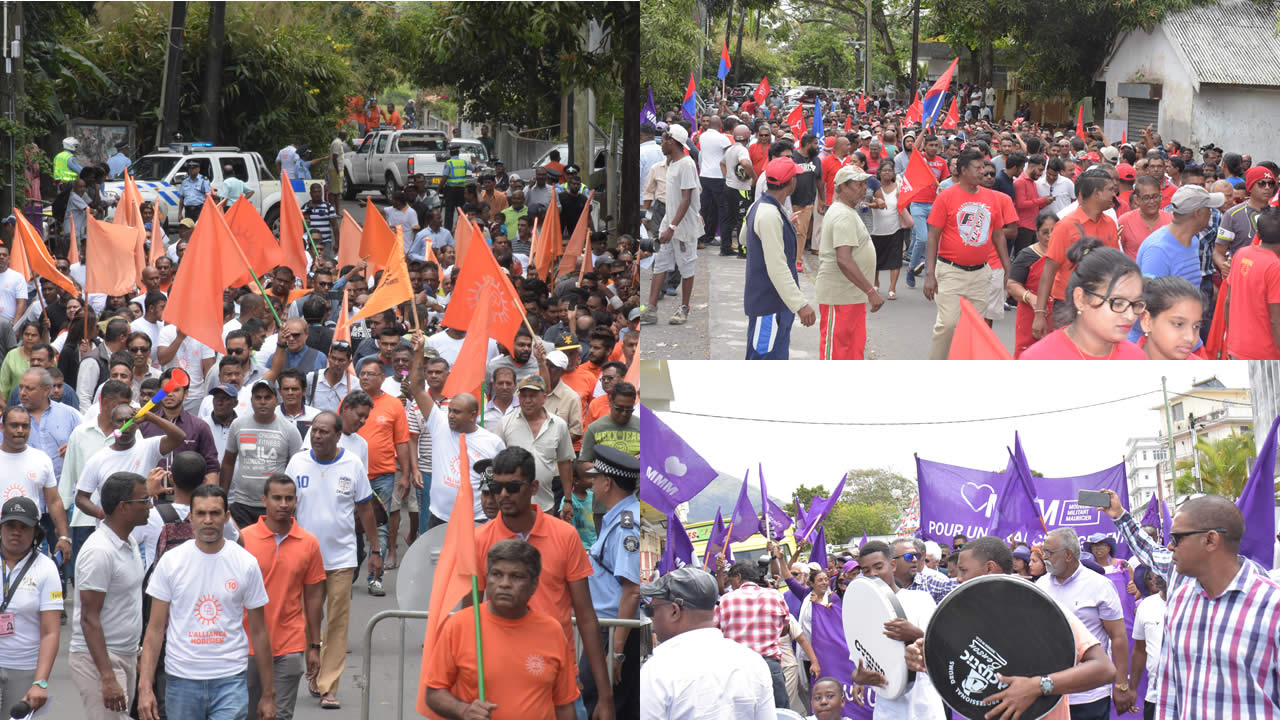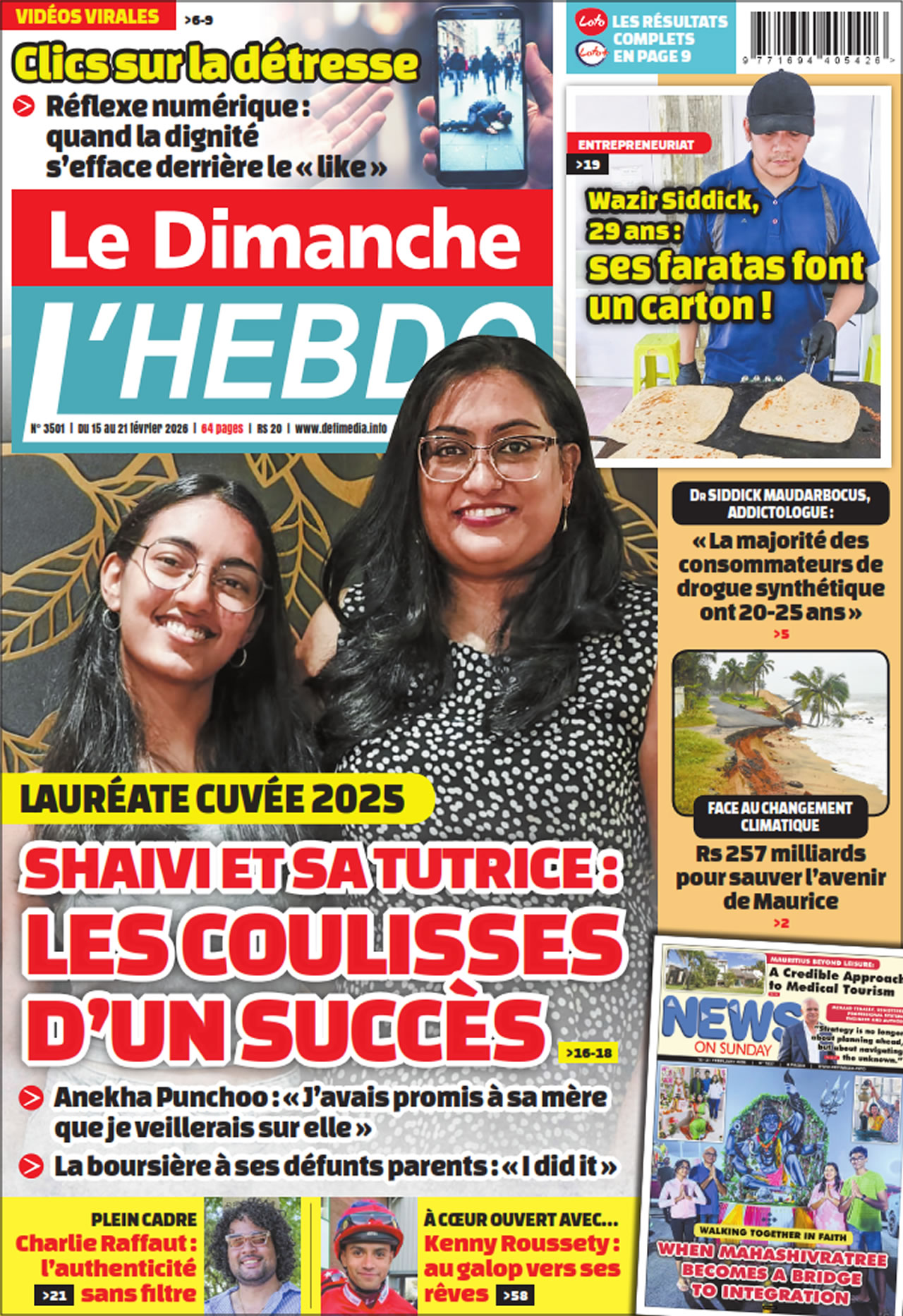
A total of 817 candidates have registered for the forthcoming 2019 National Assembly elections. According to the Electoral Commissioner’s Office, this is a record number of candidates in our history of elections. A detailed analysis shows that less than 20% (18.1%) are female candidates. Age-wise, nearly 20 percent of all candidates are above 60 years old. There is a total of 941,719 electors on the official register.
It costs only Rs 1,500 to stand as a candidate. This represents a deposit which is refunded if the candidate obtains at least 10% of the total votes. However, this is not the only cost for a candidate. Running for elections nowadays is costly given the various expenses a candidate has to incur. A candidate has to spend a fortune in campaigning, hiring agents, spending on transport, food, banners and other logistics as well as communication materials. With social media being an inevitable campaigning tool, many candidates have to hire graphic designers to design promotional and propaganda artwork as well as social media consultants to manage their public profile pages.
In addition, candidates are often solicited by associations, clubs and other social groups to finance their activities or events, and they cannot refuse, for fear of losing votes. This is an additional burden on their purse.
That could be a reason why many politicians are well-off lawyers and business entrepreneurs. The challenges faced by candidates are money, time, lost opportunities, among others. Few can afford this. Often, candidates have to choose between their professional career and politics. There have been many cases where people have left well-paid jobs and high positions to stand as candidate and then lose the elections. The pressure is always huge on new entrants.
Candidates belonging to parties have to contribute to expenses incurred, such as organising meetings, hiring of buses or paying agents. Some candidates might also be lucky to find generous sponsors who offer to pay for certain expenses or donate free food or hire tents and cars free of charge.
There are also candidates who take loans or sell private property to finance their campaigns.
Main expenses
Campaign logistics
- Sound: Between Rs 1,000 and Rs 3,000 per day
- Chair rental: Between Rs 5 and Rs 10 per unit
- Tent: Between Rs 6,000 and Rs 10,000
- Banners (cloth): Between Rs 5 and Rs 10 per metre
- Banners (vinyl): Between Rs 500 and Rs 1,000 per unit
- Catering: as from Rs 50,000
- Administrative: Rs 30,000
- Car rental : Between Rs 500 and Rs 1,000 per day
- Fuel costs : Between Rs 500 and Rs 1,000 per day
Expenses on Election Day
- Car rental: Between Rs 500 and Rs 1,000 per car
- Fuel costs to transport voters: Average Rs 3,000 per car
- Fuel costs for car rally: Average Rs 1,000 per car
- T-shirt: Between Rs 50 and Rs 100 per unit
- Allowance to agents: Up to Rs 1,000 per agent
- Supplies (stationery, phone cards etc) : Up to Rs 500 per agent
- Food : up to 300 per agent
Expenses on Counting Day
- Up to Rs 1 000 per agent, with one or two agents per room
- Food allowance: Up to Rs 300 per agent
- Sundries (stationery, phone cards etc): Up to Rs 500 per agent
Major event
- Regional congress: between Rs 150,000 and Rs 250,000
- National meeting: Up to Rs 8,000 per bus
A boon for entrepreneurs
General elections come once in five years and this is the time for many small entrepreneurs to cash in. Demand is high for banners, posters and leaflets. Small printing companies have order books filled to the brim. Similarly, there is huge demand for taxis, vans and buses to ferry activists to meetings and other events. Catering services also have their share with parties and candidates ordering cakes, ‘briyani’, ‘kebab’, drinks and other delicacies.
Global trend : higher spending does not mean victory
The cost of campaigning to be elected as US president has steadily risen over the last 100 years, but particularly so between 2000 and 2012, when spending by the candidates more than quadrupled. In the 2016 campaign, eventual winner Republican Donald Trump and runner-up Democratic nominee Hilary Clinton spent a combined $1.16 billion. When including all other candidates, a total of $2.4 billion was spent. It is usually the perception that the candidate who spends the most money wins. However, that did not prove true during the 2016 US presidential elections, when the runner-up, Democratic candidate Hilary Clinton, spent $768 million, nearly twice as much as the eventual winner, Republican candidate Donald Trump, who spent $398 million.
Political consultants
These are professionals who advise on all aspects of the campaigns, from research to field strategy. Political consultants also advise on electoral programmes, the type of measures to be announced in order to attract voters as well as the timing on the announcements. They are also responsible for monitoring and analysing opponents’ speeches, announcements and activities, in order to draw elements for rebuttal and criticism.
Activists
Activists are generally the ground soldiers and many may be volunteers. Their expenses are covered by the candidates or parties. These are often loyal supporters who have good field network and organizational skills. They take part in door-to-door canvassing and also ensure that all seats at meetings are filled. They distribute leaflets, t-shirts, posters and flags on behalf of the candidates. They feel the pulse of the electorate in their designated areas and provide feedback to the candidates. Activists may be both male and female, employed and unemployed.
Online : campaigning
Social media has today become a key element of political campaigning. Communication technologies such as email, WhatsApp, Facebook posts and podcasts are gaining ground. Video editing is also a must.

Fake news
Most political leaders from all sides have repeatedly warned of fake news. Fake news is defined as misinformation, poor reporting, lies or propaganda. In a political context, it is usually a directed effort to undermine a candidate, campaign or public figure. Many news posted online do not reveal their source and other sources cited may not be credible but many people have a tendency to believe whatever is posted on Facebook. Social media is also rife of many polls or surveys done among a limited sample of respondents, which might be utterly misleading.

Bandwagon effect
A bandwagon effect is a psychological phenomenon where individuals will do something primarily because other individuals are doing it, regardless of their own belief or judgment. For example, a person may vote for a politician based on how others are voting, as he wants to be on the winning side. In addition to the bandwagon effect, the practice of thoughtlessly following others can lead other psychological phenomena like groupthink and herd behavior. These social behaviours can obstruct critical thinking, hinder objectivity and promote cognitive bias.
CAMPAIGN TIT BITS
Israelis in Mauritius?
For quite some time now, it is rumoured that an Israeli team is in Mauritius to advise one of the alliances on political strategies. This information, along with alleged pictures of the team in briefing sessions with their Mauritian counterparts are doing the rounds on social media, but no one has so far confirmed or denied the information. It is unclear whether Israelis are interested in local politics, but Mauritius tourism and investment is increasingly appealing to Israelis who are willing to visit the country or set up businesses here. While, in a recent past, there was a real craze among Israeli tourists for Zanzibar, today it is Mauritius which is becoming attractive to them.
Diaspora votes
Debate is currently rife on social media about the right to vote of the Mauritian Diaspora. While most countries allow their citizens staying elsewhere to vote by proxy, Mauritius does not provide similar mechanism for its citizens settled abroad. The Diaspora is a sizeable population and the majority would like to exercise their right to vote. The arguments are that, besides being patriotic to their motherland, they also contribute massively to the economy through remittances to their families or through investment in the country, hence their right to have a say in deciding who runs the country.
Foreign residents and voting
The number of foreign citizens holding residence permits and permanent resident permits, by virtue of their employment, investment or property acquisition in Mauritius, has increased steadily over the past few years. Many of them are querying on social media whether they have the right to register for local voting. This might be an important issue to ponder upon by the next government.
Incomplete information
Many electors have been receiving letters from the Electoral Commissioner’s Office to advise them of a change of polling station. However, the letters simply indicate the name of the new venue without providing its address. For example, in a particular area, residents have been informed that they should vote at the ‘Rishi Dayanand Institute’ without giving its address. Most residents were simply unaware of this institution in their area!
Road hazards
Banners and ‘oriflammes’ can be seen everywhere. While this forms part of our local electoral folklore, there are numerous cases where these banners become major road hazards, especially for motorcyclists, when they become loose or break away. There are also banners placed in such a way that they caused obstruction to visibility.
 J'aime
J'aime














